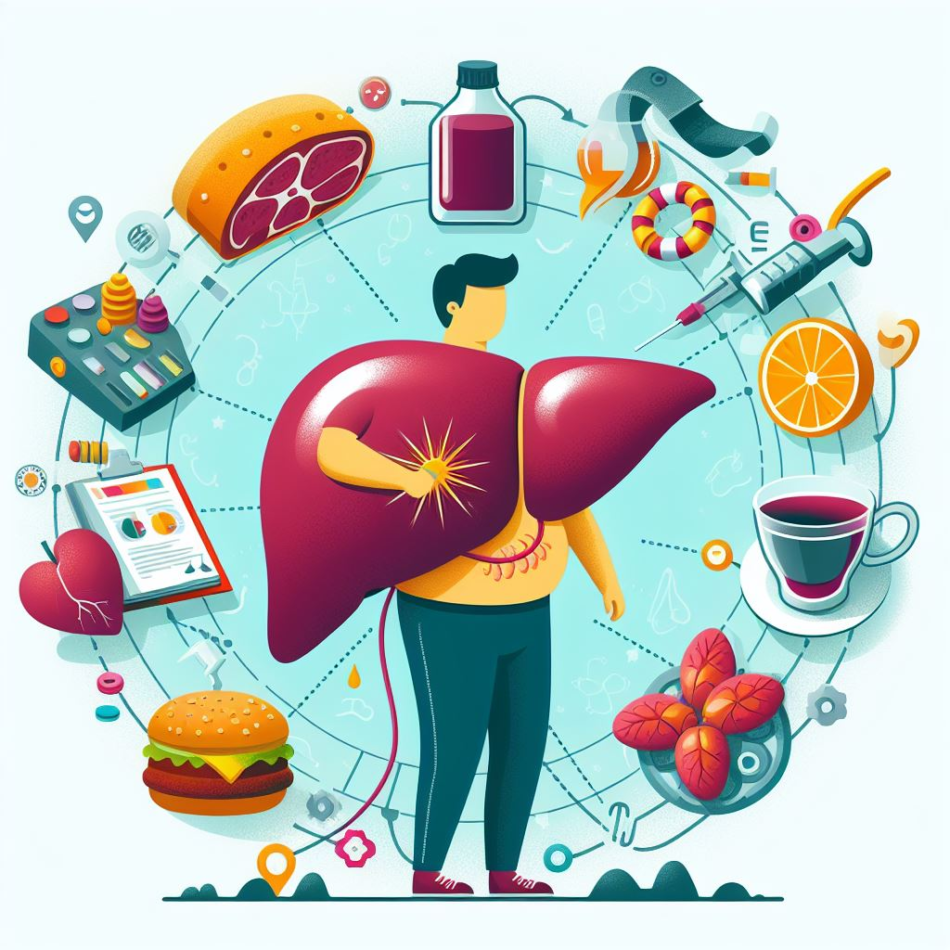Obesity is a health issue that impacts millions worldwide with consequences that go beyond what meets the eye. One of its effects often overlooked is its connection, to fatty liver disease. In this blog we will explore the link between obesity and fatty liver disease discussing the causes, outcomes and ways to prevent it.
Understanding Fatty Liver Disease;
Fatty liver disease, also known as steatosis is a condition characterized by the buildup of fat in liver cells. It manifests in two forms; alcoholic fatty liver disease (NAFLD) and alcoholic fatty liver disease (AFLD). NAFLD has emerged as a concern closely tied to obesity and metabolic issues.
The Obesity Link;
Obesity plays a role in the onset and progression of fatty liver disease. Excessive body weight, accumulation around the abdomen (visceral adiposity) triggers metabolic shifts that encourage fat storage in the liver. The complex interaction, between obesity, insulin resistance, inflammation and lipid metabolism contributes to NAFLD development.
Key Mechanisms;
- Insulin Resistance; Obesity induced insulin resistance hampers the livers ability to regulate glucose and lipid metabolism effectively resulting in increased retention of lipids.
- When the levels of fatty acids, in the bloodstream rise and the liver struggles to clear lipids it leads to the buildup of fat within the liver, known as lipid dysregulation. In individuals with obesity inflammation in tissue and the release of inflammatory substances worsen liver inflammation and damage.
- Changes in the composition of gut bacteria commonly seen in obesity can impact how fats are processed in the liver and contribute to inflammation worsening alcoholic fatty liver disease (NAFLD). If left unaddressed NAFLD can evolve from buildup (steatosis) to a more severe condition called non alcoholicsteatohepatitis (NASH) characterized by liver inflammation and scarring. NASH can progress to cirrhosis, liver failure or even liver cancer like carcinoma posing health risks that may require a liver transplant.
To prevent and manage NAFLD;
- Maintaining a weight through nutrition and regular physical activity is crucial.
- Focus on a diet abundant, in fruits, vegetables, whole grains and lean proteins while reducing consumption of processed foods, sugary drinks and saturated fats.
- Keeping diabetes under strict control can help managing NAFLD in a big way.
- Regular exercise helps enhance insulin sensitivity promote fat loss and decrease fat accumulation in the liver.
- Limit Alcohol Consumption; Reduce the amount of alcohol you consume to prevent worsening liver damage, in people with NAFLD.
- Regular Health Check ups; Make sure to schedule appointments monitor progression of NAFLD by ultrasound scan, fibroscan, and liver function test, HBA1C, Serum insulin levels and uric acid levels
In Summary;
Following a healthy lifestyle which includes a well balanced diet and a regular exercise regime, shedding excess kilograms, keeping diabetes in check, avoiding/ restricting alcohol intake will go a long way in avoiding NAFLD
For those who are Obese and diabetic and already have NAFLD, Bariatric Surgery/ Metabolic Surgery is a time proven method to bring a halt to the progression to NAFLD and even reverse it.





